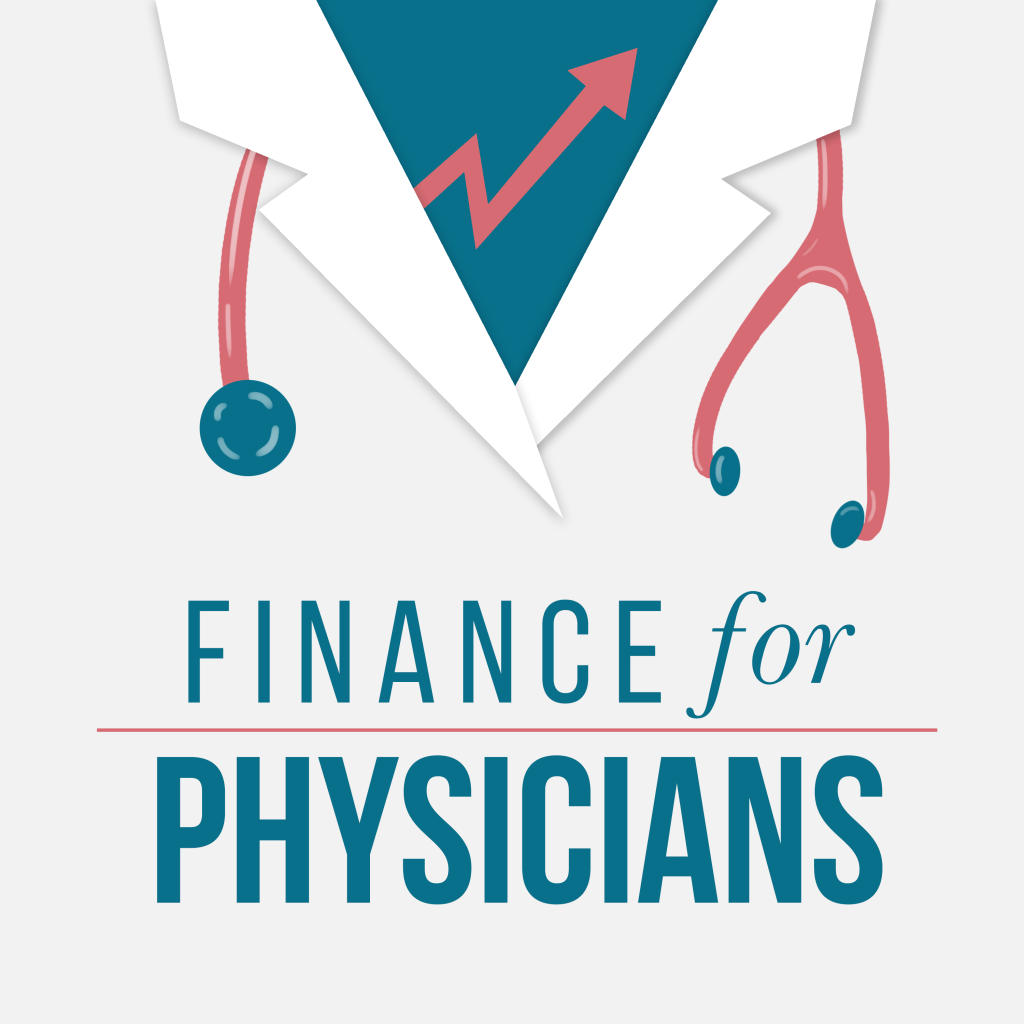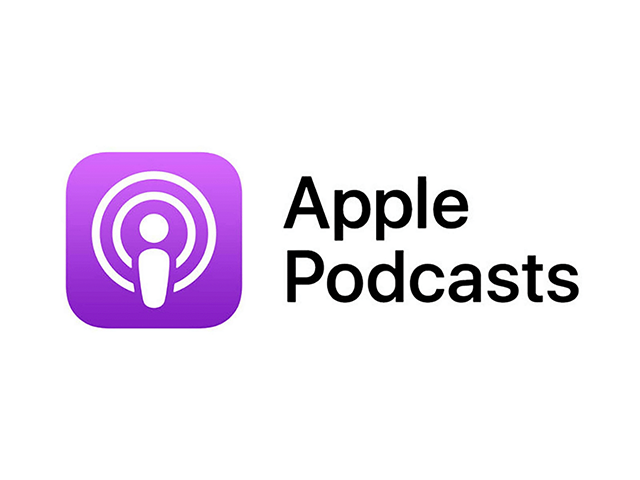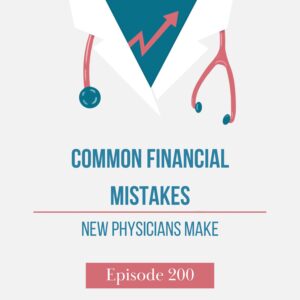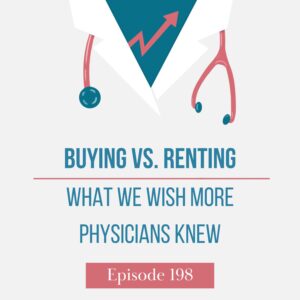The pandemic in America is starting to look like a memory of hard days gone by, but the effects can still be felt throughout our country. That reason is, probably, why the Biden Administration has decided to extend their Covid 19 Forberances to the end of this year.
In this episode of the Finance For Physicians Podcast, Daniel Wrenne will go into detail with Jeff Wenger about the situation surrounding Covid Forbearances while also taking a look at the currently shifting loan-giving and forgiving policy of the Biden Administration.
Topics Discussed:
- How to financially plan in accordance with the extended forbearance period if you have mortgage payments on the way.
- Student loan forgiveness: Are you eligible? Is it useful at all?
- The Federal Pell Grant. How it works and how to know if you’re eligible.
Links:
Contact Finance for Physicians
UPDATES ON 4 BIG CHANGES TO FEDERAL STUDENT LOANS
Full Episode Transcript:
Daniel: Hello, everyone. Once again, we have a major change to the student loan world and I am joined by my good buddy, Jeff. And we’re gonna break it down for you. There’s been a few changes. I think once again, could have major impacts to what you’re doing with your student loans. And so we’re gonna talk through some of those today, the changes that are coming out.
But, before we get into that. Jeff, thanks for joining us again.
Jeff Wenger: Oh, no problem, Daniel always excited to talk about student loans.
Daniel: Jeff is one of those guys that enjoys his student loan stuff. Like he gets into it. I think he does it in his spare time, even like maybe, you know, after hours. Right, Jeff?
Jeff Wenger: It was an unexpected passion. Yeah.
Daniel: And you weren’t a little kid and you’re like, “Hey, I’m gonna grow up and like be into student loans”.
Jeff Wenger: No, when I thought I was gonna work on financial planning, I never in my life thought that student loan forgiveness would be something I’d be excited about.
Daniel: Yeah. Well, I think the way I justified, because I’m kind of into it too myself, but the way I justified is I was into strategy stuff as a kid, like strategy games. And student loans have gotten so complicated that they basically have become kind of like a strategy, very strategic game, in some ways.
So, the strategy has changed slightly a little bit. That’s the thing that makes these so complicated. They keep tinkering with these student loan rules and stipulations. So let’s talk about what all that is entailing. The announcement came out a few, I guess, yesterday, as of when we’re recording this, it was, it was yesterday, right, Jeff?
Jeff Wenger: Yeah. I believe August 24th, 2022.
Daniel: Two days ago, August 24th. Yes. So, first big change. COVID forbearance extended once again. When is it extended to Jeff?
Jeff Wenger: So this time, and again, they mentioned this as the final time, we’ll see if that’s true,
Daniel: Didn’t they say that last time?
Jeff Wenger: I think they’ve said that at least twice now. BUT we’ll see.
Daniel: But this is really the final.
Jeff Wenger: But is it? Stay tuned. But this time it has been extended to the end of the year. So 12/31/2022 And so that would mean that the first time payments are set to resume would be in January. And really that’s probably the biggest, update for a lot of the families that people that listen to this, is that it is push back payments another four months.
Daniel: Yep. Which is a home run. If you’re going for PSLF Because they count and you’re getting a few more months of not making payments. Hopefully you’re not getting used to spending that money. If you are, think about how you’re gonna get outta that. You know, I did a show on COVID life. COVID forbearance lifestyle creep or something like that.
But that’s for real and I’ve, you know, we’re all tempted when we have disposable income, to get used to spending it. So, it appears that that may be ending soon. So you really need to be making a plan for how you’re gonna start making payments again. And well, at minimum, be aware of like what that payment’s gonna actually be. But definitely, what’s the plan? How you gonna make those payments?
Jeff Wenger: Yeah. So two tips, I guess, that go along with that would be that the payments, as far as they’re scheduled to resume will be the pre forbearance payments at this time, unless you’ve recertified income in between when payments were frozen initially and now so that’s a good thing to note there that you can. I mean, you may be a lower payment than you would’ve ever expected that will kick in.
Daniel: How do you check that?
Jeff Wenger: So, it has been a little bit tough to do that by going to your servicer. The easiest way to do that right now is to actually go to studentaid.gov and download your aid data there.
Daniel: With the old NSLDS the old NSLDS file.
Jeff Wenger: If you like speaking in a foreign language, that’s student loanies for my student data.
Daniel: Well if you work with us, you can send it to us and we’ll tell you, but if you’re looking at this yourself, the way we do it is, the way I do it is I just search for payment the word “payment” or something like that. And it’ll just scan through that document and you total up all the payments for the open loans and that, you know, well, assuming the data is correct, I’m always hesitant with student loans, but that theory is what the payment is that they have on record for you for your monthly payment.
Jeff Wenger: Right. So that would be probably the easiest way to just search. It’s an ugly file if you’ve never opened it, it opens on WordPad or the equivalent of what might open on an Apple. So yeah, searching for that kind of payment is a way to find that and it’ll be for each loans, you might have to total those up.
Daniel: Yup but the good news is you get four more months of no payments and that’s nice.
Jeff Wenger: Number two on that is recertification dates. I would still pay attention to that. That may change again. But in that same file, if you search for, IDR, there’ll be anniversary in one of those searches, that will have when you are scheduled to re-certify income again, if you need to. But every time we’ve had an extension now, that has been pushed back. So the earliest anyone’s required to recertify right now is March of 2023 but that very well could be extended too.
Daniel: I keep hearing people we work with one-on-one say stuff like they’re getting info about re-certifying income.
And I think that that’s happened occasionally during COVID forbearance. Maybe part of that is like, the timing has been just unclear and these services are like, “oh, now you do need this re-certify income”, “oh, now you don’t need to”, “now you do”. So people have inevitably re-certified over the period of this COVID forbearance, whether they were required to or not.
So If you’ve already done that, it is what it is. You know, the past, you can’t do anything about it, but in the future from now until whenever your next date is before you just go off an email, you think is requiring you to re-certify. I would suggest like doing what Jeff was just talking about and look at your date on there.
Verify that it is actually required because if you, you know, go on an email that’s not worded. It might say “we encourage people to recertify income to get ahead of everything” or something like that. That’s not very firm language. And by recertifying, that can cost you a ton of added money, especially if you’re like going into practice, your income’s jumped up. So definitely be aware of that.
Jeff Wenger: Very good. Yeah. So I think those are two things that take away there would be, you can find your payment and you can find when you’re required to re-certify there with the caveat. It may get pushed back a little further yet,
Daniel: Yes. Even though it’s the last end final extension. Okay. Second big one. The forgiveness, is being promised, the widespread, well. Means tested income, tested forgiveness. I guess it’s what is it, Jeff? $10,000 to $20,000, right?
Jeff Wenger: Yeah. I think this is the one that, gets most of the headlines right now and most of the reactions, but yeah, $10,000 blanket forgiveness. $20,000 if you had a Pell grant, taken out or not taken out, but granted to you while you were, taking out loans in, in undergrad, there.
Daniel: It’s like a need base.
Jeff Wenger: Right. And so there are a couple key items there, right? There’s an income limit. And then, there’ll be a, how do you apply for this? And some of those are still details. That’ll be hashed out but what is that income limit, Daniel?
Daniel: It is married makes below 125. Wait, sorry. I’m getting that backwards. $125,000 for individuals or below, and then $250,000 for couples. And above that, you’re out on this.
Jeff Wenger: Yeah. There’s no phase in or phase out on this. Or at least from what it looks like, there’s just not there. It’s just a means test.
Daniel: Right. Which is interesting for tax planning purposes, us geeky planners were like, normally they don’t do it that way because it creates this ridiculous incentive if you’re right on that bubble to do something potentially crazy to get below it . So imagine you’re, I don’t know how they’re gonna test. Do you know how they’re gonna test it yet, Jeff?
Jeff Wenger: Those are still details that are gonna be coming out. They said, if you have been recertifying your income and they have your data, that they will use that.
And so if that, qualifies you on its own, then hopefully it’ll just be plain automatic. But it says that there will be an application coming out by the time payments resume.
Daniel: So, well, I imagine if I had to guess how they’re gonna do it, and this is just based on how they’ve done other things, I would bet that they’re gonna use prior tax returns. That’s how they did all those child tax credits and that’s how they’ve done all this income verification for student loans is they just use recent tax returns typically. So hopefully they put that out before the end of the calendar year 2022. If I had to make a prediction, they’re gonna say something like, you know, 20, maybe it comes out and you know, later in the year.
And they’re like, you can use your most recent tax return and you have to do it by some deadline. So let’s say the deadline is March of 2023 that you have to file for all this. They’re gonna have to give you some time. And if that announcement comes out before the end of the calendar year, which is entirely possible, there’s could be this situation where it’s like, you’re expecting, if you’re married, your household income to be like $255,000 You’re on track for $255,000 And so if nothing, if you don’t do anything about it, you’re gonna miss up to $20,000 straight up. So that’s when it’s like, that’s why I was saying about crazy planning strategies, it’s like get a stinking credit card to max out your 401k. If you don’t have the money, not that you should do that. But if you put $5,000 into some sort of pre-tax investment through work and pull your income down to $250,000 or less, that potentially is gonna get you $20,000.
So it can create this insanely unique tax situation. So be watching out for it. We’ll watch out for it too. Look out for how they’re gonna define income, ’cause that’s a big deal. And especially when they have these very unfazed, just hard line income qualifiers, because ideally you know, you’re gonna be below of that.
What about forgiveness? I, I mean, PSLF not forgiveness. This is forgiveness, but this is gonna, I guess, if you’re going for PSLF is not that big of a deal, right?
Jeff Wenger: Right. Yeah. If you’re going for PSLF so that, you know, the 10 year route, ultimately this isn’t going to make a difference for you overall, ’cause the payments will still kick in when payments kick in.
You’re gonna pay the same amount overall on the student loans before they’re forgiven. Not a major deal there. But you know, just in case, I mean, if you qualify for it, you may as well have it forgiven because
Daniel: You never know.
Jeff Wenger: Maybe you switch jobs, maybe you leave PSLF but
Daniel: I feel, for those of you listening that refinanced your loans a couple weeks ago and might have qualified for this, that just sucks because refinance probably makes sense. That’s been the most frustrating thing about all these student loan things is they, in some cases are penalizing, people you know, with all the information you have might be a reasonable decision.
So, there’s a lot of people that will have, had federal loans that refinanced to private because you know, that probably made a lot of sense and they just wanted to pay the things off, but they’re getting penalized for being proactive with wanting to pay their loans off.
Jeff Wenger: Right. And we had a brief conversation about this, where policy-wise we’re not sure if this is a great move or not.
It has pros, it has cons, but from a numbers perspective, we’re just looking at, how do we make the most out of the options that we have on the table? Yeah.
Daniel: For you individually, we’re gonna look out for you to be like, let’s see how we can maximize this benefit. And that’s the focus today now, you know, like I said, if you have private loans, you’re kind of like out on all this stuff, it is what it is. But if you’re still in the federal system, you’re entirely eligible for this. And it’s just a matter of what you qualify for, or if you’re above that threshold or not income-wise what’s the difference in the 20 versus 10 Jeff?
Jeff Wenger: Oh, good questions. Yeah, you could have up to $20,000 and that would be if you had, if you received a Pell grant, you can find that as well. I feel like I went to studentaid.gov earlier this week. It just gave me like a you’re in a waiting line message, because it was so exciting for a lot of people that it just crashed their site. But on studentaid.gov one of the very first screens that you’ll see there, has a breakdown of your loans and grants and it’ll tell you right there really quickly, if you had a Pell grant that you were a recipient of.
Daniel: You know what? I think I had a Pell grant in undergrad. Does that mean I’m gonna get some money?
Jeff Wenger: Well, that depends on if you have loans and how you file your taxes.
Daniel: I’ve long ago, paid off my loans.
Jeff Wenger: Oh, well you are, you are on the outside looking in.
Daniel: Man. I shouldn’t have paid. Just kidding. I still feel good about paying off my loans despite this.
Jeff Wenger: I think that’s a good point too, is that this is a benefit to those that it applies to, but it it’s not gonna make or break most situations. You know, from where we’re at, it’s an optimizer maybe rather than something that determines success overall.
Daniel: Yep.
Jeff Wenger: One other piece on that, if you think you might benefit from that forgiveness amount, you can actually put yourself on an email list from studentaid.gov. There’s a link there to be notified when that application is available. Maybe you have the federal loans and you haven’t been doing anything income-driven in the past, and so you’ve never certified income there, but you want to be, notified when that happens, that might apply if you’ve, recently, you know, you’ve been in residency here and training for a little while recently and have just transitioned, then it might apply and you’re planning to refinance loans or something like that, but you could be notified by going to studentaid.gov there and signing up for their email notification
Daniel: Yeah. And this is not gonna be taxed, right?
Jeff Wenger: No, I think, it was back at the beginning of Biden-Harris presidency that they had passed a law that until I think 2025, any loan forgiveness is not taxable.
Daniel: It’s like they always had this planned. Yeah.
Jeff Wenger: It’s like, yeah. It’s like, there’s a plan. Well, I mean, come on.
Daniel: He did say it.
Jeff Wenger: He did campaign on that.
Daniel: Yeah, I know, I know.
Jeff Wenger: Not like this is a big surprise.
Daniel: I mean, he stuck to the promise, so you know, that part of it is good. But yeah, so should not be taxed federally. I have heard some people that think that this is gonna be challenged big time in court. Because here’s the theory. And I don’t know how much of this is legit or not. I’m just kind of going off rumblings. But the thought is like, if he, the president, can kind of like forgive with his signature, $10,000. Well, what makes that, that would mean, you could assume, that that would mean he could forgive everything, right?
So there’s $10,000, $20,000. Where’s the line drawn on what his power is, in terms of forgiving loans, potentially could be unlimited, even if it’s not Biden, future presidents. So it’s a pretty big deal to, I think, and this is the argument I’m going off of it’s a people think it’s a pretty big deal to allow that the president to have the power to do that.
And so, whether you believe in it or not, it’s the one individual doing it. And so, the thought is, because of that people, are gonna go hardcore, legally, to try to fight it, to not allow it if they disagree with it. Is that accurate, Jeff?
Jeff Wenger: I would not be surprised at all to see it challenge, like you said. And I think, I mean, from a broad picture, that’s a legitimate concern, right? It has long lasting impact there. The argument that they’re making is that this applies specifically under the Heroes Act from 2003, I believe is when it was. And so it does apply kind of to a national emergency. So hopefully it’s not light as broad reaching as anytime I wanna sign something, I can forgive that.
Daniel: And that’s why they keep saying it’s about the pandemic and due to your financial hardships, it’s like , I laugh about it because I mean, it’s the people, at least, I know some people are struggling with it and that’s one thing, but the people that we’re working with and probably most of you listening are not struggling financially and pride the majority of people getting this are not struggling financially. You’re educated people. If you have a lot of student loans, you’re educated people and you’re probably working and making good living. And so, it’s just interesting that they use language like that. And I guess it makes sense because they wanna make sure, legally, that it does tie back to that Heroes Act and qualifies as a national emergency.
Jeff Wenger: Yeah, I think the argument there is that the department of education, through the president, has a lot of broad authority over student loans.
Daniel: Yeah, that’s all. So hopefully, this sticks as is, I just wanted to mention that is there’s a lot of people that think that, especially this forgiveness aspect is gonna get challenged. So, we’ll have to see how that shakes out. I have no idea how.
Jeff Wenger: I’m getting a crystal ball reading though, Daniel.
Daniel: What’s the crystal ball say?
Jeff Wenger: I don’t make many predictions, but that type of a challenge would
Daniel: be big.
Jeff Wenger: I don’t think this is the last extension.
Daniel: Oh, you’re making a prediction that the COVID forbearance gets extended?
Jeff Wenger: Especially if there’s a legal challenge to this portion of the forgiveness, I believe that, that would potentially lead to, well, we need an extension until this is sorted out.
Daniel: Oh, my goodness.
Jeff Wenger: So stay tuned. Yeah. The winds never stop changing.
Daniel: Yeah, don’t count on our predictions. You know, we’re not great at making these predictions. I was the guy that was like, no way they’re extending it again in the very beginning. So here we are.
Jeff Wenger: Yeah. That’s a cracked crystal ball, by the way. It doesn’t work all the time. It’s only right about 50%.
Daniel: At best.
All right. So that’s the second big thing. What’s the third big thing? Income Driven payments changing.
Jeff Wenger: Those first two are probably the most applicable to the families that we’re talking to right now. But, yeah, a new IDR plan. They announced the intent to implement one, a new Income Driven Repayment plan that most of these plans, well, there’s a whole lot of ’em,
but the most common ones, cap payments at 10% of your discretionary income. And that’s a fun like, let’s just speak another language when we’re talking about that, right? But 10% of income, this one would be 5% of income, but it only applies to undergraduate loans. So, there’s potential there for a better payment system or a better outcome, if we’re looking at paying on student loans as a whole, but that’s kind of the very broad summary of it. What else do you have on that Daniel? There, there are pieces to it.
Daniel: Well, I don’t know. I don’t know if we should go too far into it because it’s like, they’re putting it out as like a proposal. I think they still are gonna have like some public input, they’re opening it for public comment and which means it’s like completely not set in stone. But the fact that they announced it is pretty substantial, like in that they’re all in, on making it happen and it could be big. I don’t know, it all depends on the details. It could affect a lot of people if they’re gonna let you still qualify. Especially PSLF I mean, if it qualifies for PSLF and you had a fair amount of undergraduate loans, I could see that being pretty impactful, ’cause your payment is gonna get pulled down a fair amount, but I don’t know the details. So we’ll just have to see how they play out, right?
Jeff Wenger: Right. So it looks like that’ll be a more favorable option, especially for undergrad-only loans overall. It said it’ll weight the graduate loans with the undergrad loans at the 5% and 10%, or 5% and I guess, whatever else percentage you have on your other loans would be, but that’ll be one to stay tuned on, but probably not a major impact to the majority of our audience here that has larger graduate school loans.
Daniel: What about the last one? The PSLF waiver and the IDR waiver. This is kind of gray too, right?
Jeff Wenger: Yeah. The last one, it’s almost like a little afterthought that’s kind of tucked in at the end of this, press release and it doesn’t say it explicitly here about, “we want to extend the PSLF waiver”, but, can you remind us, what is the PSLF waiver, first of all?
Daniel: Well, you all can check out the episode where we talk about it and we will link to that in the show notes, but like the big components of it were that they allowed you, for PSLF especially, they allow you to account payments made on FFEL loans, which used to not qualify for PSLF And that’s a huge deal for people that had loans, you know, going back quite a while, especially before 2010, there was a lot of FFEL loans. And so the waiver allows you to now qualify those payments and it also allows you to qualify for any payment types and then it also had a forbearance thing.
So there was a lot of excessive forbearance or what do they call it? Forbearance-steering was the word they used. The servicers were pushing everybody into forbearance. That was completely happening, it was true, but they have some, you know, parameters where you potentially get all those payments counted towards PSLF as well.
So it was basically a much more generous PSLF payment counting changes that allowed some of these unique exclusions or even just non-qualified prior to, to start to count. So, we have seen a lot of people we work with benefit from the PSLF waiver, for example, like somebody that went all through training and did forbearance the entire time.
‘Cause the servicers, like I said, were given that out like candy, they were encouraging people to do it and so, say you had a five year training, all forbearance, zero payments made. You get done? You’re like, oh no, I’m working for the hospital. I missed out on five years of PSLF but then this waiver pops out and it’s like, boom, all of it qualifies.
Now you have five years under your belt, which is huge, like massive benefit. And so there’s a lot of application where that, or you had that FFEL loans and you were making payments and you didn’t qualify. So that’s what the PSLF waiver is. There’s a few more other components. That I’m not hitting on, but you can check out that episode and we’ll dig into it.
Jeff Wenger: Yeah. And again, that’s an intent to make long term changes. That’s not an announcement of this has actually happened and really the focus of that, like Daniel said, looks like it’ll be on the payments overall, to include if you made a late payment or the lump sums that got all applied at once.
If you’ve ever heard a story like that, but just applying partial late payments and some of those forbearances and deferments, especially like military service I’m counting, things like that. I’d expect that to be what they wanna make permanent, potentially.
Daniel: Yeah, I would not, this last thing about the waiver, I would pretend like it wasn’t even in there honestly. And just pretend like you have to get everything done by October 31st, in relation to the original waiver we talked about and pretend like nothing’s gonna change just ’cause this is super, I don’t even know why they put it in there. I mean, I guess they’re trying to get people excited about even better future changes, but it’s very unclear.
Jeff Wenger: Right. So that those are intent. That one is an intent and really the IDR plan is also yeah, plan change, but no details that are ironed out really.
Daniel: Yep. All right. Well, other things on that last part of the equation or just thoughts in general or nuggets we can share in relation to all this?
Jeff Wenger: I think, really big takeaways here, big things that you can do if you are looking to get loans kind of tidied up before that. So October 31st, 2022 Halloween is the deadline for a lot of the kind of really generous changes to be submitted. So if you have not submitted employer certification, so if you’ve worked at a non-profit and haven’t submitted that, I would get that in ahead of that time, just so that those payments are being counted and being a little bit more lenient. The best way to do that from an acceptance point has been to use, they call it the PSLF help tool. So if you go to studentaid.gov/pslf, that will actually provide you a tool that helps to prefill some of those forms that you used to have to do by hand. You still have to print it out, you still have to send it in, but at least it has the exact information that’s in the database for some of those employers.
Daniel: You also need to do direct consolidation, right? If you had FFEL loans.
Jeff Wenger: And if you had FFEL loans and you’re trying to, or loans that had separate payment accounts, sometimes we do see where one loan had 97 payments and another one had 52. If you consolidate those loans by October 31st, or submit that consolidation by October 31st, the longer payment count. So all those payments get applied to whatever program you’re looking to, to apply for, for forgiveness.
Daniel: Yep. And if you’re not sure if you’re qualifying for that waiver,
be sure. ‘Cause it’s impactful enough to potentially game-change your finances. So if you’re like, I don’t know if I qualify for the PSLF, don’t be there before. We’re in the final stretch, so be sure whether or not you’re gonna benefit from it and if you are potentially gonna benefit from it, do those things. Jeff just talked about like today, like it’s the last minute basically.
Other nuggets or takeaways there, Jeff?
Jeff Wenger: Those are the big ones. Payments have been paused until the end of the year.
Daniel: Once again. Yep.
Jeff Wenger: Possible $10,000, $20,000 forgiveness.
Daniel: What are we gonna do about, yeah, I guess we’re gonna wait and see if they extend it again and wait and see, it’s always like we get in this wait and see thing. That’s that’s my biggest, as a planner, frustration about the student loan thing, this wait and see thing. So we’re gonna wait and see how the pause plays out, does it actually get extended again? We can’t count on their word because they’ve broken it multiple times in saying that this was the final one, but it wasn’t, the student loan forgiveness, we’re gonna have to wait and see how they like define all those parameters.
Nobody knows exactly how they’re gonna define income or what the deadlines are gonna be. So, I mean, it is substantial enough to where if you have private loans, I mean, sorry, federal loans, I would not refinance them right now. Wait and see how this thing, or I would not pay them off right now. I would wait and see how this shakes out. But we’ll wait and see and hopefully get a better idea of this soon.
Jeff Wenger: And maybe the best tidbit came from you, Daniel, there was if you’ve been spending the payments. You would’ve been paying on student loans, start paying yourself those payments now. Even if payments never resume. You’ll be happy you did, right? That’ll be money in your pocket that you can build a better life with.
Daniel: Right. Yes. Don’t spend the student loan dollars.
Jeff Wenger: Start saving now. Get ready.
Daniel: If you take away anything. Don’t spend those COVID forbearance student loan dollars. Get those, keep those dollars in your pocket.
Jeff Wenger: Yeah. All right. Well, it has been a pleasure to talk about student loans again.
Daniel: Well, if you’re a client of ours and you’re still sticking around, kudos to you, but you can always shoot us stuff like this and we can help kind of digest this type of stuff. And if you’re just listening in and you’re not working with us, feel free to throw out questions on specifics and that sort of stuff we can always dig in and help in that regard.
So I always enjoy talking student loans, especially with my buddy, Jeff. We could geek you out about this for hours and hours, but appreciate you coming on, Jeff.
Jeff Wenger: My pleasure. Let’s do it again soon.
Daniel: All right. We’ll see you, we’ll talk when we know what’s actually gonna happen with student loans, if that ever occurs or we’ll talk when they change things again, which is more likely to happen.
Jeff Wenger: It’s your strategy game, Daniel, the rules change. And we’ll update our strategy too.
Daniel: I guess it, I guess it wouldn’t be strategy if it wasn’t changing and if it was super simple. So, it’s always fun.
Jeff Wenger: All right. Well happy planning, Daniel.
Daniel: All right. You too.









